Gillespie Field Groove, a Private Detective Mystery by Corey Lynn Fayman
Guest Post + Book & Author Info + Excerpt!
Don’t miss any blog tour posts! Click the link here.
Gillespie Field Groove
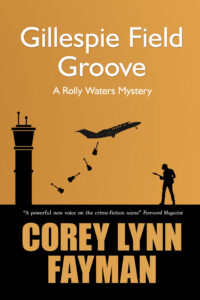
An obscure rock’n’roll roadie dies under mysterious circumstances. A prized Jimi Hendrix guitar has gone missing. Can Rolly Waters save his new client from the ruthless collectors looking for it?
When nurse and fledgling pilot Lucinda Rhodes hires guitar-playing private detective Rolly Waters to track down a Stratocaster guitar owned by her deceased father, Rolly is thrilled to take on her case, especially when he learns the guitar’s original owner may have been Jimi Hendrix. But Gerry Rhodes’s reckless personal history leads to more questions than Rolly and Lucinda have bargained for, as an aging rock’n’roll impresario, his trophy wife, a Russian gangster and the FBI get involved. When a forty-year-old shooting accident reveals a surprising connection to a pop star’s hit record, Rolly sees darker forces at work. And his and Lucinda’s lives hang in the balance.
Praise for Gillespie Field Groove:
“Gillespie Field Groove hits all the right notes. Music fans and general mystery readers alike will enjoy this story’s irresistible beat.” ~ blueinkreview.com “Exciting, compelling, suspenseful, and reflective of the realities of the music industry and San Diego culture, Gillespie Field Groove is a thrilling mystery novel in which a man seeks to right the wrongs committed by greedy executives.” ~ forewordreviews.com
Book Details:
Genre: Private Detective Mystery, Cozy Mystery Published by: Konstellation Press Publication Date: March 2023 Number of Pages: 276 ISBN: 0998748285 (ISBN-13: 978-0998748283) Series: A Rolly Waters Mystery, 5th
To purchase Gillespie Field Groove, click the following links: Amazon | Barnes & Noble | BookShop.org | Goodreads
Guest Post — Gillespie Field Groove — Dialogue Magic
by Corey Lynn Fayman
Some writers enjoy plotting, creating intricate schemes. Others love to describe the fictional world they’ve invented. And some like to get into the mind of their characters, chronicling their inner psychologies. I enjoy writing all of those, but what I really relish is composing dialogue, imagining the exchange of words between two or more characters. Dialogue has magical powers. Here’s a few things I think it can do for a writer, as well as three things to look out for.
Show don’t tell. This often-repeated bit of writing advice can sometimes be addressed with a well written bit of dialogue. Since the words come straight from the characters’ mouths rather than the authors (at least they appear to), the reader can make their own judgements about character motivation, intent, morals and manners.
Reveal character. Is your character smart or dim-witted? College-smart or street smart? Idealistic, down-to-earth, funny or mean? Dialogue can illustrate that. Instead of telling us a character is arrogant, have them say arrogant things. The reader will respond more directly, as if they were there, listening.
Create tension. Every character in your story has their own agenda and goals. Anytime they meet they’re negotiating. What are they willing to reveal? What are they trying to hide? Are they direct, dismissive, or deflecting? How does the environment the characters meet in affect what they say? The situational differences between each character’s goals and their conversational style should create dramatic tension. Dialogue is a negotiation, not just a back-and-forth recitation of information.
Those are three things I think dialogue can do well, and why I like to dig in deep with my fictional characters’ conversations. If your written dialogue does all the above at the same time, you’re really onto something. But beware. There are some things you need to avoid:
Data dumping. Characters spewing long explanations or “talking” the narrative are problematic. Readers get bored very quickly with this kind of thing. And don’t try to work your way around it by having another character interject with, “I see. What else?” That’s not real dialogue.
Don’t overdo it. When it comes to character, a little goes a long way. Got a Russian mobster with a lisp in your story? Pick a few words they say differently and only use them occasionally. Accents and verbal tics are fun, but they can wear out the reader. Use this spice lightly.
Don’t forget context. This is my own biggest bugaboo, the mistake I make most frequently. I get so involved in writing the dialogue that I go on for pages without reminding the reader where the characters are, what else is going on in the scene or how they react physically. You don’t always need much, but you need to provide context to break up the dialogue. Otherwise, you’re writing a play.
Corey Lynn Fayman, author of Gillespie Field Groove
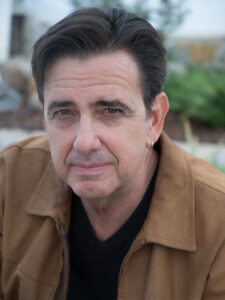
Corey Lynn Fayman has worked as a musician, sound technician, and interactive designer. He holds a B.A. in English, with a specialization in creative writing and poetry from UCLA, and an M.A. in Educational Technology from San Diego State University. Fayman spent five years as a sound technician and designer at the nationally lauded Old Globe Theatre, where he received several nominations and a Drama-Logue Award for his theatrical sound design.
He’s worked as an interactive designer for organizations both corporate and sundry and has taught technology and design courses at various colleges and universities. He lives in San Diego, California, and is the author of four Rolly Waters mystery series, including Blacks Beach Shuffle, Border Field Blues, and Desert City Diva (2015 Indiefab Book of the Year bronze award).
The fourth in the series, Ballast Point Breakdown, was honored with the best-in-show Geisel Award at the 2021 San Diego Book Awards.
To learn more about Corey Lynn Fayman, click on any of the following links: Website, Goodreads, BookBub, Twitter, Facebook.
Read an Excerpt from Gillespie Field Groove
The Nurse
Just after two in the afternoon, Rolly Waters sat at a round concrete table in the courtyard of Alvarado Hospital, nursing a cappuccino to which he’d added five drops of artificial sweetener. He was trying to cut sugar out of his diet. The woman across the table from him smiled. Her name was Lucinda Rhodes. She was a nurse at the hospital. Two years ago, Lucinda had seen Rolly at his worst, in the emergency room of a hospital in Brawley where the doctors had treated him for a black widow spider bite. Nurse Lucinda had kept tabs on him through the night, checking his blood pressure, giving him pills, and had fitted him with crutches before he checked out. Rolly didn’t remember much else about that night, except that it had been hot in the desert, and everything smelled like fertilizer. He didn’t remember giving his business card to the nurse. But Nurse Lucinda had one of his cards in her hand today. She placed it on the table like a bridge player dropping a trump card.
“I don’t know why I kept this,” she said. “I guess I thought it might come in handy someday. I’d never met a private investigator before. You were funny, not like I thought a detective would be. You flirted with me.”
“I did?” Rolly said, hoping he sounded more amnesic than incredulous. “I hope I wasn’t out of line.”
“I’ve dealt with a lot worse,” said Lucinda. “Besides, I thought you were kind of cute.”
“What do you think now?” Rolly said, unable to resist. Lucinda smiled and redirected the conversation.
“You’re a musician, right?” she said. “You play the guitar?”
Rolly nodded. He didn’t usually drive out to meet potential clients as soon as they called, but his detective work had dried up. The hospital was only a fifteen-minute drive from his house, east on Highway 8 near San Diego State University. He’d gotten to know any number of the local hospitals over the years, interviewing accident victims for their lawyers. Sometimes he’d been in the accident.
“Tell me what you’re looking for again,” he said. “You said something about your father?”
Lucinda nodded, glanced over at the coffee stand, then back at Rolly. She appeared to be in her late thirties or early forties, a little wide around the middle, with an honest, gentle face. She seemed more down to earth than most of the women Rolly had dated. He wasn’t dating Lucinda, though. She was a potential client. He’d gotten too close to a client once, gotten involved with her while working on her case. That was how he’d ended up in the emergency room in Brawley.
“My dad died,” Lucinda said. “Last week.”
“I’m sorry.”
Lucinda stared into her coffee cup, contemplating the black liquid inside.
“He’s why I moved here,” she said. “From Brawley. It was three months ago. I knew he needed some help. I didn’t see my dad much when I was growing up. I lived with my mother after they got divorced. She died ten years ago. Cancer. I don’t have any siblings, so my dad was all the family I had left.”
“What did your father do for a living?”
“He was in the music business, like you. One of those guys that travels around with bands.”
“A roadie?”
Lucinda nodded.
“That’s how they met, my mom and my dad. She used to tell me the story all the time. It was at a Jimi Hendrix concert. Here in San Diego. Dad was in charge of those speakers they put in front so the singers can hear themselves?”
“The monitors,” said Rolly.
“Yeah. My mom was sixteen. She’d won some contest on at a radio station. That’s how she got backstage for the concert. She was supposed to meet Jimi Hendrix, but the radio people messed something up, I can’t remember exactly what it was, but he wouldn’t talk to any of them. Jimi Hendrix, I mean. She met him later, thanks to my dad.”
“She met your dad backstage?”
“It was outside, after the show. There was a riot. The police were there. Dad helped Mom get away. That’s how she ended up on the band’s tour bus. And the rest, as my mom liked to say, was history.”
“How old was your dad?” asked Rolly.
“Twenty, I think. Maybe twenty-one. Not that big a difference but . . .” Lucinda shrugged. “Times were different then, I guess.”
“Yeah,” Rolly concurred. He was not about to throw stones at glass houses. There’d been girls at the clubs where his bands played, girls with fake IDs who were younger than he’d been. He hoped none of the ones he’d taken home had been legally underage, but thinking about it now in his forties made him a little queasy. As Lucinda had noted, times had changed. Some.
“Mom was gone for five days,” Lucinda continued. “Her parents didn’t know where she was. It made all the papers. This guy at the radio station got fired. Two years later, out of the blue, my dad comes back to town and looks up my mom. She was of age then and they got married. I came along later. I think they were trying to save their marriage by having a baby.”
“They wouldn’t be the first,” Rolly said. Lucinda’s story about her parents was interesting and her way of telling it made him like her even more, but he needed to get down to business, keep it professional. “How can I be of help?”
Lucinda reached in the front left pocket of her scrubs and pulled out a photograph. She placed it on the table.
“It’s this photograph,” she said. “My dad left it for me. I don’t know why. I don’t even know who the guy is.”
Rolly picked up the photograph. It was a black man, no older than thirty. He was dressed in a seafoam-green suit, something a Motown act might have worn in the early seventies. The comparison wasn’t far off. The man was a musician, with a white Stratocaster guitar strapped over his shoulder, as if he’d just stepped off, or was preparing to step onto, the stage.
“He’s not Jimi Hendrix.” Rolly said. “I can tell you that much.”
Lucinda frowned.
“I may be from Brawley, Mr. Waters, but I’m not a total hick. I know he’s not Jimi Hendrix. The thing is . . . it looks like my dad’s guitar. The one Jimi Hendrix gave him.”
Rolly leaned back in his chair and reassessed the guitar in the photograph. It looked like thousands of others, but if Jimi Hendrix had touched that Stratocaster even once, it was more valuable than the rest.
“You understand why I thought you could help me?” Lucinda said.
Rolly nodded. He stared at the photo again.
“You think this guy in the photo still has the guitar?”
Lucinda shrugged.
“I don’t know. I remember seeing one like it in my dad’s apartment when I was a kid. I remember him saying he didn’t have much to give me, except that guitar, the one Jimi Hendrix gave him. He said it would be my inheritance.”
“Could be a pretty nice inheritance,” Rolly said.
“That’s what I thought,” said Lucinda. She leaned back in her seat and tapped both hands on the table. “I looked up some things on the internet. One of Jimi Hendrix’s guitars sold for almost two million dollars.”
“Well,” said Rolly. “That was the guitar from Woodstock, the one Hendrix used to play ‘The Star-Spangled Banner.’ I don’t think this one would be worth that much . . .”
“It’d be worth something, though, wouldn’t it? If it came from Jimi Hendrix.”
“Yeah.” Rolly nodded. Any guitar Hendrix had touched would be worth a considerable amount to collectors, if it had provenance. That wasn’t Rolly’s area of expertise, but he knew people who could help him out with the valuation. He’d need to have the actual guitar in his hands, though. This one was only a photograph. And Jimi Hendrix wasn’t in the photo.
“Do you have any other documentation or photos?” he asked.
Lucinda shook her head.
“When was the last time you saw the guitar in your dad’s possession?”
“Maybe ten years ago.” Lucinda shrugged. “I haven’t really been through his stuff yet. The church said they could let me into his apartment tomorrow.”
“He lived at a church?”
Lucinda sighed. She surveyed the courtyard, then sipped her coffee a couple of times.
“My dad worked at this Russian Orthodox church,” she said. “Over in Allied Gardens. He did some maintenance, ran the PA system, stuff like that. They let him live in this little apartment at the edge of the property, rent free, in exchange for his work. My dad was seventy- three, but he couldn’t retire. He didn’t have any Social Security. Not much, anyway. He was starting to lose it, mentally.”
Rolly nodded again, trying not to think about where he’d be at seventy-three. According to the latest mailing from the IRS, he’d only be pulling in three hundred and twenty-five dollars a month from Social Security when he turned sixty-five. He’d never be able to retire.
“The first thing you should look for is a sales receipt,” he said.
“Hmm?” Lucinda said, sounding distracted, as if she’d been thinking about something entirely different.
“When you go through his apartment,” Rolly said. “Look for a sales slip. In case he sold the guitar to someone.”
“He might have, I guess,” Lucinda said. “Dad was always having money troubles. He wasn’t the kind of guy who kept accurate paperwork. He always said if you couldn’t do business on a handshake with someone then you shouldn’t do business with them at all. I think it cost him over the years. Well, that and the drugs. He had substance abuse problems.”
“Occupational hazard,” Rolly said. “If he worked in the music business. I had to get sober myself.”
“How long has it been for you?”
“Twenty years now, I guess, something like that.”
“Sober people usually know to the day,” said Lucinda. She didn’t sound like she was challenging him, just stating a fact. Rolly shrugged.
“My father still drinks too much,” he said. “That helps me avoid it.”
Lucinda leaned forward again and rubbed her hands together, as if she were washing them.
“Maybe you could come with me tomorrow?” she said. “To my dad’s place.”
“I’d have to charge you for it,” Rolly said.
“How much?”
“Fifty dollars an hour. Three hundred a day. Plus expenses,” said Rolly. He liked Lucinda. Her case was already more interesting than most, but he still needed to get paid.
“I can do that,” said Lucinda. “Maybe around ten o’clock tomorrow morning? Just a couple of hours. The church is just down the street from this nightclub you might know. Bump’s?”
“Yeah, I know Bump’s,” Rolly said. “I used to play there sometimes.”
“Great,” said Lucinda. “I appreciate this. I didn’t want to go there alone. I don’t have any family or friends here in town I can ask.”
Rolly placed the photograph on the table, pulled out his phone and took several pictures of it, checked them, decided they’d do, then passed the original photo back to Lucinda.
“I’ll show your photo to some people I know,” he said. “Maybe someone’s seen this guitar before. They might know who the guy in the photo is, too.”
“Are you going to charge me for that?”
“No,” Rolly said. He shrugged. “It’s on me. I was going to see a guy today anyway.”
“Thanks,” Lucinda said. “I’ll see you tomorrow, at the church. Bring a contract if you need me to sign one.”
They exchanged contact information and stood up. Lucinda turned to walk away.
“Wait,” said Rolly. Lucinda paused. “Where did you find this photograph?”
“What’s that?” she said.
“You said you hadn’t been able to get into your father’s apartment. Where did this photo come from?”
Lucinda took a deep breath, not quite a sigh.
“We’ll have to talk about that, I guess. My dad called me the night that he died. I was working. When I stopped by after work, he was dead. He had an envelope with my name on it in his lap. The photo was in the envelope.”
“Was there anything else?”
“No. Just the photo. I put it in my car and called nine-one-one. The paramedics came first, and then the police. They sealed off the apartment. I wasn’t allowed to go back in.”
“Did you show them the photograph?”
“No. I didn’t think it was important.”
“What do you mean?” Rolly asked.
Lucinda stared into her coffee cup again. She looked up at Rolly again. Her voice broke.
“The police think someone murdered him.”
Giveaway: This is a giveaway hosted by Partners in Crime Virtual Book Tours for Corey Fayman. See the widget for entry terms and conditions. Void where prohibited. The giveaway is for: 1 $20 Amazon.com Gift Card & 1 Physical copy of Gillespie Field Groove for US residents
Visit all the Stops on the Tour!
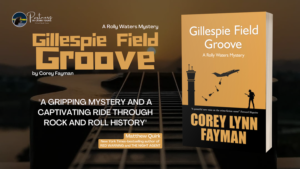
05/08 Guest post @ The Book Divas Reads
05/10 Interview @ The Reading Frenzy
05/10 Showcase @ Books, Ramblings, and Tea
05/11 Guest post @ The Mystery of Writing
05/12 Showcase @ The Pen & Muse
05/13 Review @ Reading is my Superpower
05/16 Review @ Its All About the Book
05/19 Review @ Book Reviews From an Avid Reader
05/27 Showcase @ Silvers Reviews
05/28 Review @ Paws. Read. Repeat
05/30 Interview @ Hott Books
05/31 Review @ 5 Minutes for Books
06/01 Review @ Celticladys Reviews
06/01 Review @ elaine_sapp65
06/02 Review @ Melissa As Blog
Elena Taylor/Elena Hartwell

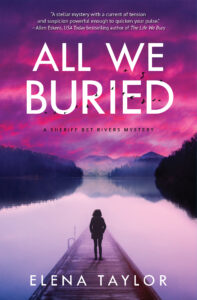 All We Buried, available now in print, e-book, and audio.
All We Buried, available now in print, e-book, and audio.
Silver Falchion Award Finalist, Best Investigator
Foreword INDIE Award Finalist, Best Mystery
The Foundation of Plot, a Wait, Wait, Don’t Query (Yet!) guidebook.

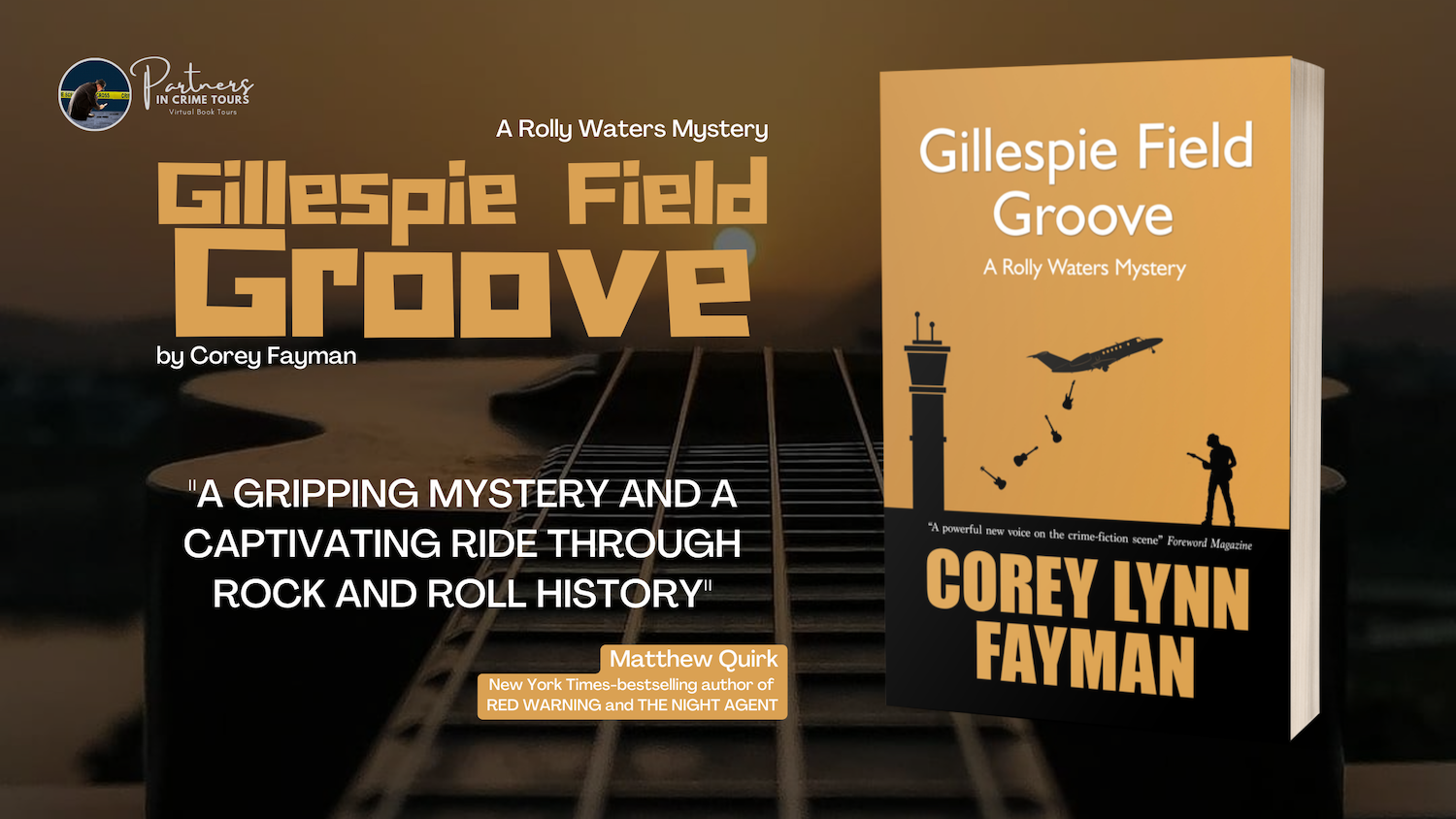
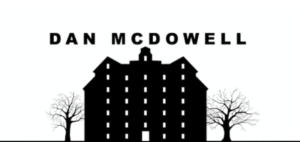
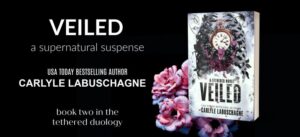
Gosh! I love dialog. It’s my favorite part of any novel. I can’t wait to sit down with my copy of Gillespie Field Groove. Thanks for sharing, Elena! This looks fabulous!
Ditto!
Thanks for sharing and posting, Elena! Nice to be here.
Great to have you visit my readers!